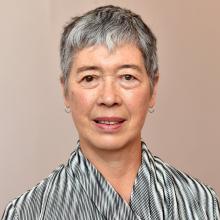

The market opened on March 1, 2003, with 38 stalls selling everything from chillies and cactuses, nectarines and apples, to silverbeet and spring onions.
It seemed that Dunedin people had been waiting for the market. Long queues formed at many of the stalls, vendors were overwhelmed and many sold out by 9.30am.
It has gone on to become one of the best authentic farmers markets in the country, selling only food and plants produced locally. Unlike many other markets, it runs throughout the year.
''If anyone had told me 15 years ago I'd be going jobbing to Dunedin every Saturday for 15 years I'd have said 'What planet are you on?' But we've done it,'' says Heather Preedy, of Ettrick Gardens, who grows and sells fruit and vegetables.
Heather and John Preedy were among the first to apply for a stall. Earlier, she had phoned the Invercargill wholesale markets, to see if they wanted any strawberries but they didn't, so she signed up for the Otago market and they have been coming ever since.
''It's been a great thing for small growers,'' says John.
''Now instead of planting 500 leeks I plant about 15,000. That's the scale things have increased.''
Their staff, too, has grown from one part-time worker over summer to 10 full-timers, and many more to help at busy harvest times.
''We've grown with the market and with the customers, too. We've tried a lot of different things and some worked and some didn't. It's a good testing ground to see what we can grow and what the customers want,'' Heather said.
Over the years they have introduced kale, coloured carrots, coloured silverbeet, golden beetroot, fennel and, last year, celeriac.
In summer, they leave Central Otago at 3.45am and get home again about 4pm. In winter, when the roads are icy, they come to town the night before.
Colleen Dennison, of Evansdale Cheese, was also an early stallholder.
''We'd been to a number of markets before and never made much money, so I was a bit hesitant about going but I remember selling out. People in Dunedin really support the market,'' she said.
She loves the social interaction with customers and the friendship with other vendors. However, like a few other vendors now in their late 70s and 80s, she feels age is creeping up on her.
''I don't know what I'm going to do when Saturday morning comes around and I can't go anymore,'' she said.
According to market general manager Kate Vercoe, there are about 8000 customers on a busy Saturday.They are not just foodies in search of the finest merino cuts or artisan cheese, or health nuts intent on kombucha or cricket-meal pasta, but also students and people looking for affordable fruit and vegetables.
The model that was put in place at the beginning has sustained the market well, Vercoe says.
''We work hard to maintain 70% of primary product and not get overrun with food stalls and added value stalls. They have a place, there is no two ways about it, but the primary product is what really draws people on a weekly basis.''
Paul Crack, who did the original feasibility study, said his internet research showed the imperative of rules - fresh, local - to stop an overrun of cheap junk or seconds produce, as well as food and coffee to keep buyers on site.
''A key learning was critical mass - too few vendors, too few customers. Too few customers, [and there's] no incentive for vendors. People forget this was a business development model putting growers and producers first. Social and tourist benefits came later,'' he said.
The market now works with the Food Design Institute at Otago Polytechnic to provide an incubator where people who want to branch out with an innovative product can engage with the public.
Nevertheless, there have been ups and downs over the years. Farmers markets are notorious for being hotbeds of conflict, Vercoe says, but there is little of that now.
''We started an authenticity project, where I visit every vendor, often with a trustee, mostly to gather promotional information and to see their place,'' she said.
If anyone questions whether someone is actually growing or producing what they are selling she can check.
''If I can say 'I've seen it myself' - that unquantified stuff people go on about - you can nip it in the bud pretty quickly.''












